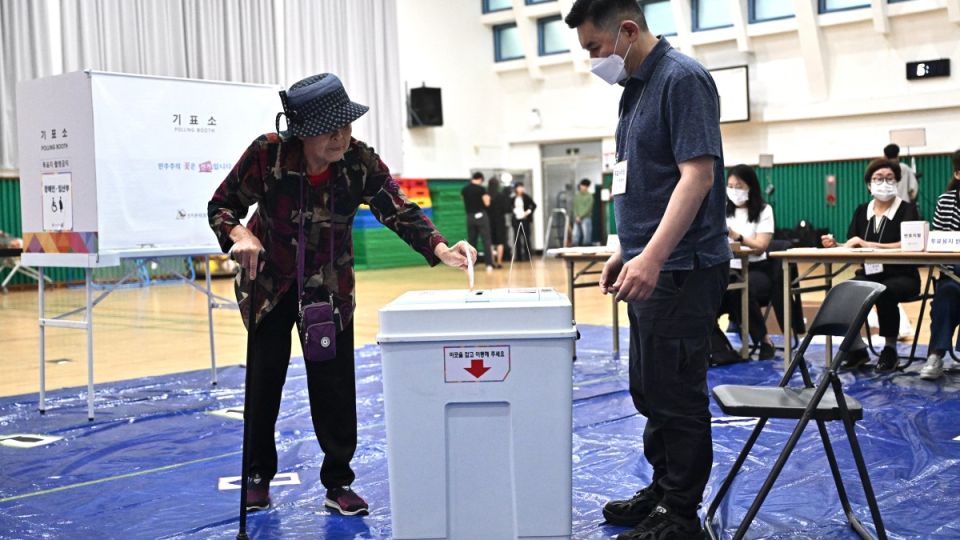June 3, 2025
SEOUL – With just a day left before the 21st presidential election, polling stations set up in unconventional locations — not the usual public schools and community centers — are drawing public interest.
According to Article 147 of the Public Official Election Act, polling stations are to be primarily set up at schools, district offices and community centers for the convenience of voters. However, if publicly owned spaces are not available, they can be hosted by private facilities.
During the parliamentary elections in April 2024, some polling stations were set up at unique locations, such as wedding halls, wrestling facilities, restaurants and cafes.
For Tuesday’s presidential election, privately owned sports facilities, such as an indoor badminton court in Gangnam-gu, southern Seoul, and a wrestling facility in Busan have been designated as polling stations.
Other unusual locations to cast a ballot include a cafe and a restaurant in Gangdong-gu, eastern Seoul, a campground in Sunchang-gun, North Jeolla Province, and a wedding hall in Pohang, North Gyeongsang Province.
Once a polling station has been set up at a privately owned business, the venue is required to close two days before the election for the installation of voting booths and other necessary arrangements. These businesses may also choose to accept a small amount of compensation or a rental fee of several hundred thousand won from the National Election Commission.
A manager at the wedding hall in Pohang, which has been used as a polling station for over 20 years, was quoted by Yonhap News Agency as saying that they provide the venue for free on Election Day “for the convenience of nearby residents.”
Voting in the 21st presidential election will take place on Tuesday, from 6 a.m. to 8 p.m., at 14,295 polling stations nationwide. Unlike in the early voting period from May 29 to 30, voters must cast their ballots at their designated polling stations.
Approximately 260,000 people have been designated as voting officers, responsible for counting votes and managing polling stations across the country.
According to the Ministry of Interior and Safety, some 44.4 million South Korean voters, including 258,254 voters overseas, are eligible to vote in this year’s election.


